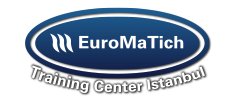Overview:
Introduction:
This training program offers a comprehensive curriculum designed to equip healthcare professionals with the knowledge and skills necessary to navigate the complex landscape of healthcare management. Through it, participants are empowered to make informed decisions, lead organizational change, and drive improvements in healthcare delivery and outcomes.
Program Objectives:
At the end of this program, participants will be able to:
- Implement patient-focused strategies, including strategic planning, across the organization.
- Leverage executive decision-making tools and formal methods to assess healthcare plans in light of regulations and ever-changing needs in the market.
- Lead and manage complex organizations’ crisis management while optimizing quality and safety best practices.
- Foster creativity throughout a department or organization.
- Apply leadership capabilities to lead healthcare teams and projects to success.
Targeted Audience:
- Healthcare administrators and managers seeking to enhance their strategic management skills.
- Healthcare executives responsible for organizational planning and decision-making.
- Clinical leaders transitioning into managerial roles within healthcare organizations.
- Professionals aspiring to advance their careers in healthcare management and leadership positions.
- Individuals involved in healthcare policy development and regulatory compliance.
Program Outlines:
Unit 1:
Introduction to Healthcare Management Fundamentals:
- Overview of healthcare management principles and practices.
- Understanding the healthcare industry landscape and its challenges.
- Analysis of key stakeholders in healthcare management.
- Introduction to strategic planning in healthcare organizations.
- Exploring the role of leadership in healthcare management.
Unit 2:
Healthcare Policy and Regulatory Environment:
- Understanding healthcare policy frameworks and regulations.
- Analysis of current trends and issues in healthcare policy.
- Overview of regulatory agencies and their roles in healthcare.
- Examining the impact of healthcare policy on organizational strategies.
- Strategies for navigating and complying with healthcare regulations.
Unit 3:
Financial Management in Healthcare Organizations:
- Introduction to healthcare finance principles and concepts.
- Understanding healthcare reimbursement systems and models.
- Analysis of budgeting and financial planning in healthcare organizations.
- Strategies for revenue cycle management and cost containment.
- Exploring financial performance indicators and metrics in healthcare.
Unit 4:
Quality Improvement and Patient Safety:
- Overview of quality improvement methodologies in healthcare.
- Understanding the importance of patient safety culture.
- Analysis of regulatory requirements and accreditation standards.
- Strategies for implementing quality improvement initiatives.
- Examining the role of data analytics in measuring and improving healthcare quality.
Unit 5:
Strategic Leadership and Change Management:
- Understanding strategic leadership principles and approaches.
- Analysis of organizational change management theories and models.
- Exploring the role of leadership in driving strategic initiatives.
- Strategies for fostering innovation and adaptation in healthcare organizations.
- Developing skills for effective communication and stakeholder engagement in change processes.


